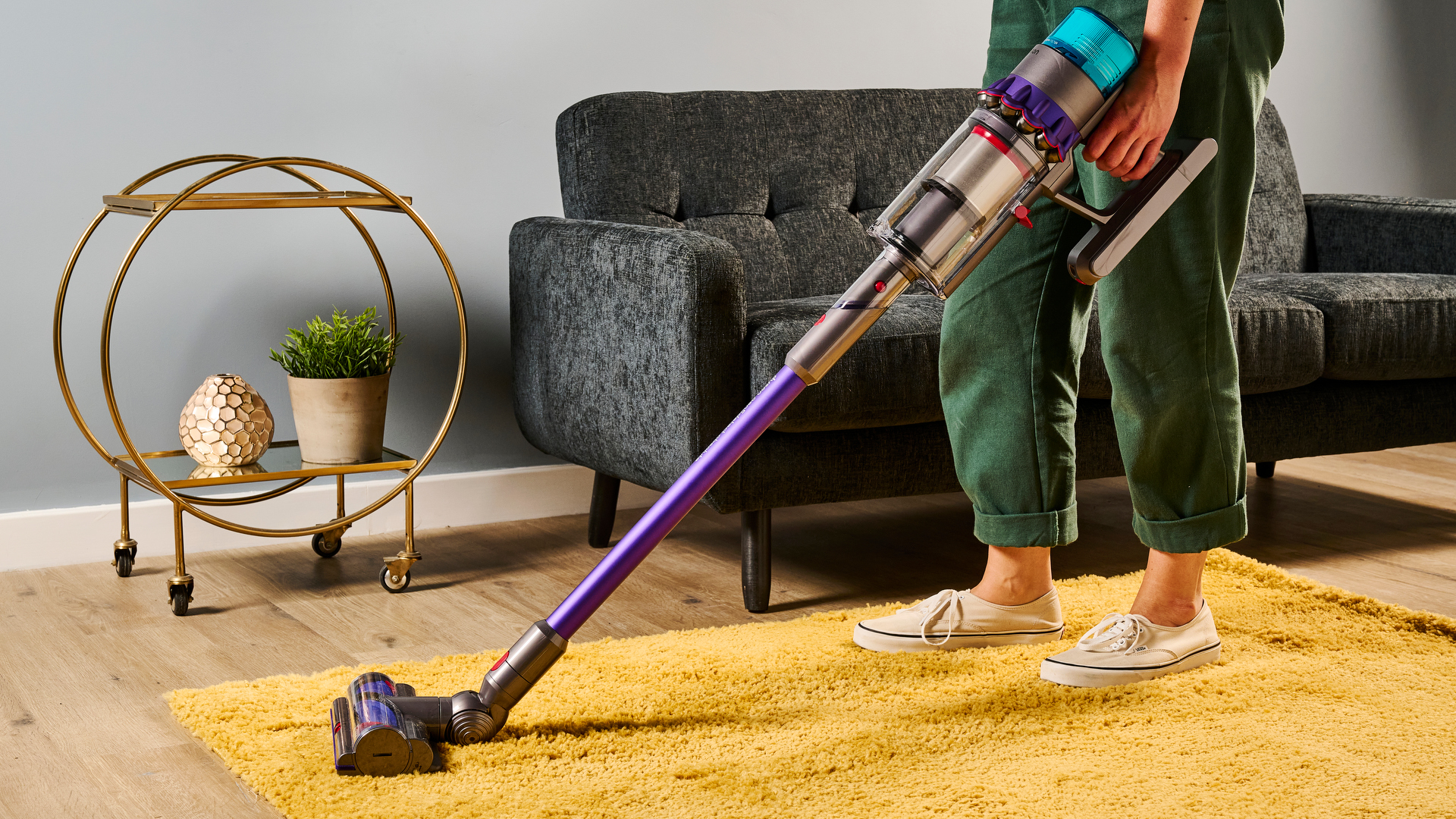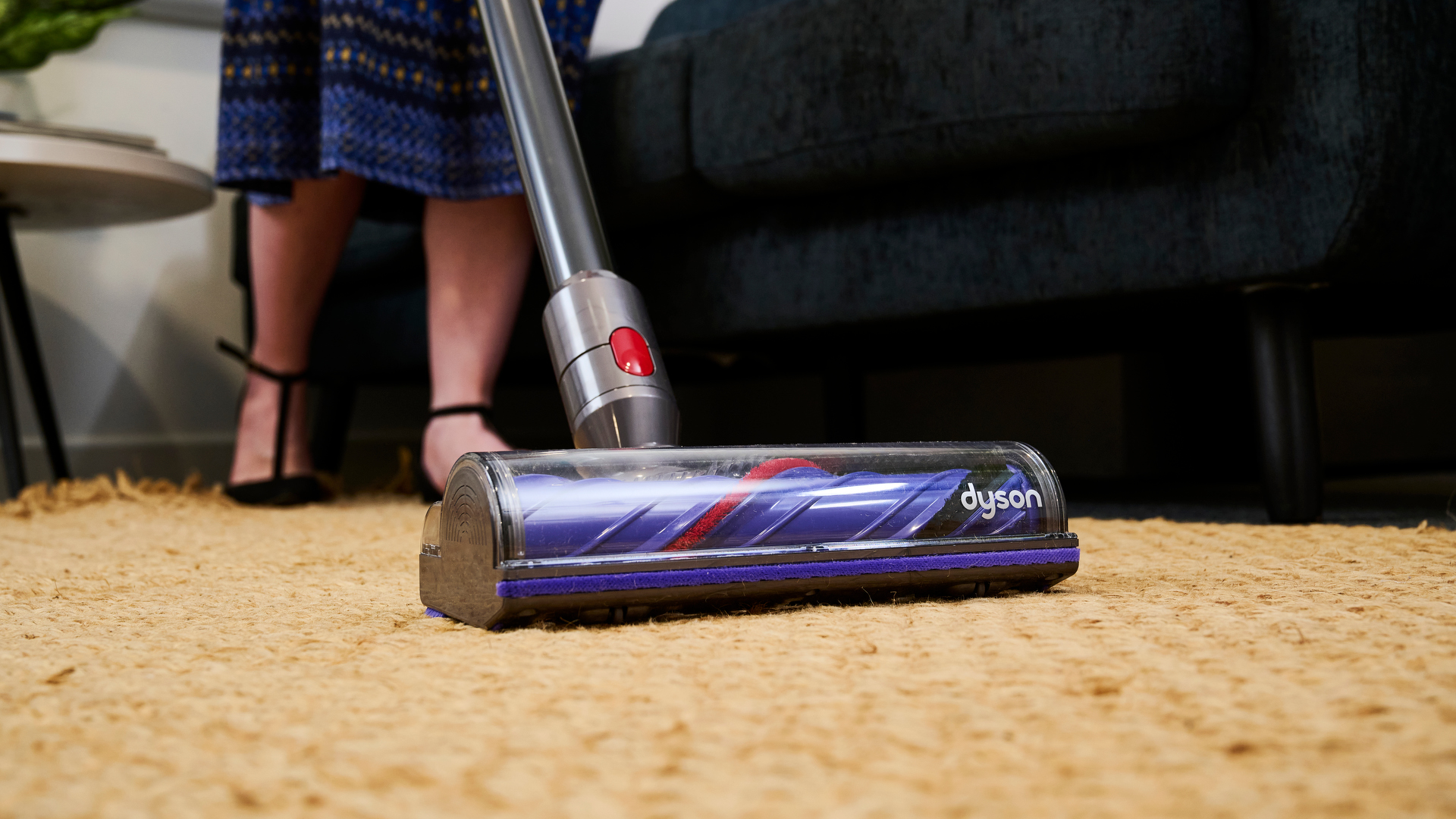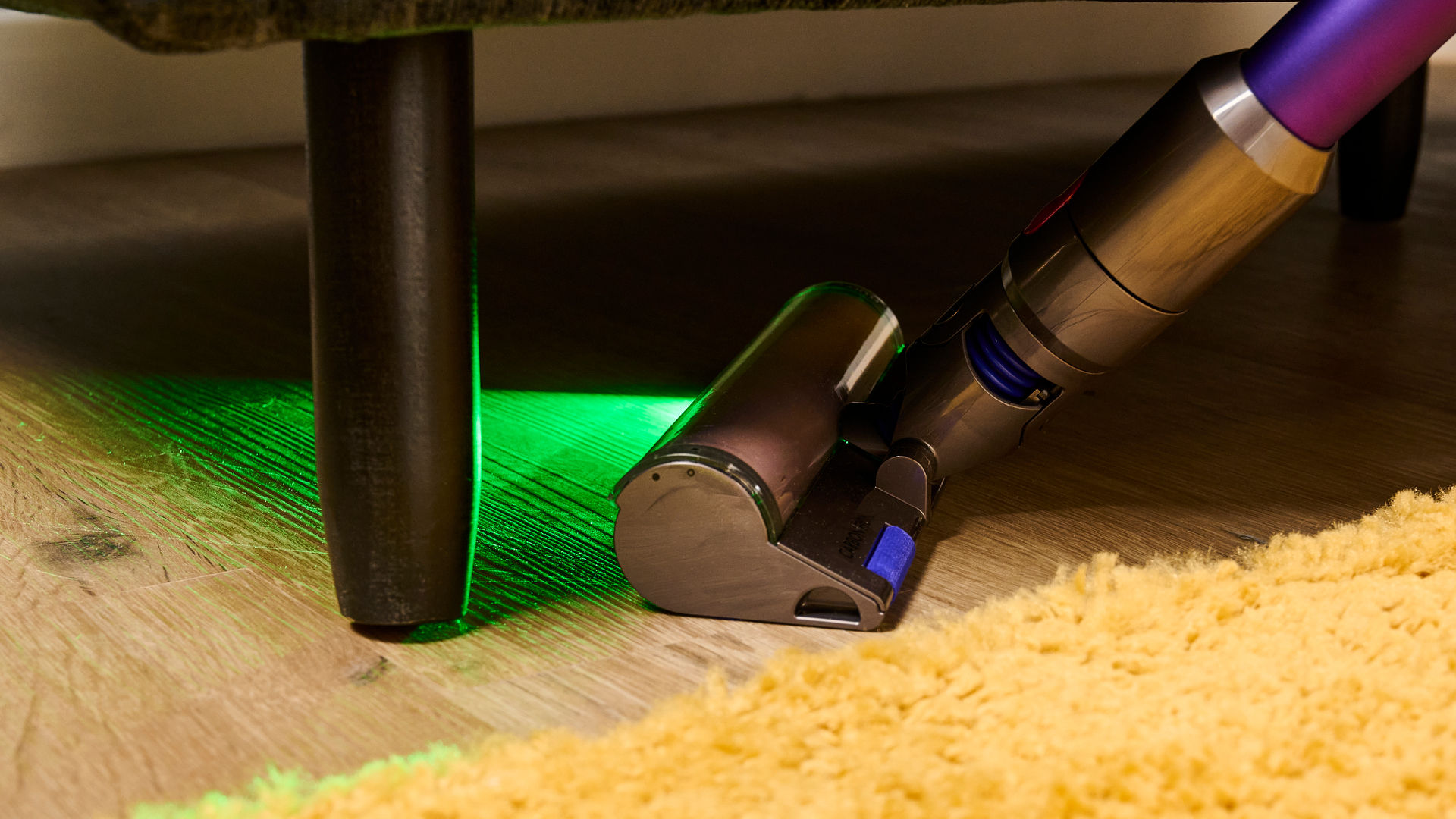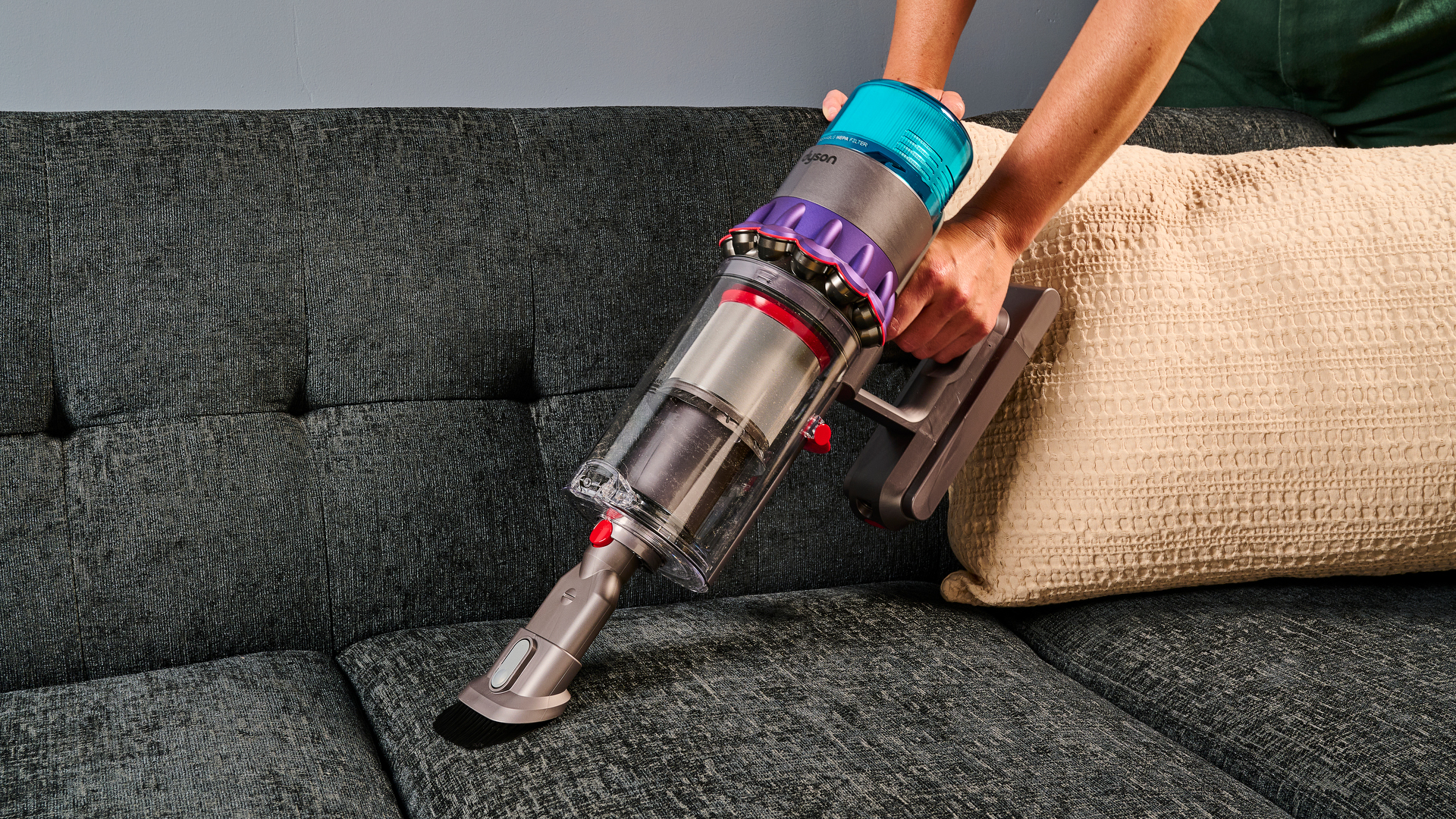Are Dyson vacuums worth the premium price? After testing most of the leading brands, here's my take
If you're wondering whether to invest in a Dyson vacuum, read this first

If you stopped people in the street and asked them which brand made the best vacuum cleaners, after plenty of strange looks, I'm willing to bet Dyson would get the most shout-outs. I'm also willing to bet that most people would flag up the price. Dyson has a well-established reputation for making excellent vacuums that are seriously expensive to buy. Today's best Dyson vacuums boast impressive specs and features you won't find anywhere else. So do they justify that high price?
As TechRadar's Homes Editor specializing in floorcare, I spend a lot of time testing vacuum cleaners from various brands. I've used ultra-budget vacs and vacuums that cost more than a week's holiday; vacuums that offer features no one ever asked for and ones that fail at the most basic of cleaning tasks.
Here's my take on how Dyson sits within the wider market. Focusing on Dyson's cordless vacuums in particular, these are the places where the brand shines, where it falls down – and ultimately, if these high-tech vacuums are worth the investment...
1. They're meticulously engineered
I've dealt with plenty of vacuum cleaner brands, and Dyson consistently impresses me with how it designs and engineers its products. I've visited Dyson's UK development labs where the vacuums are designed, seen the tests that are being run on the prototype models, and listened to various engineers nerding out about the intricacies of how the vacuums operate and the new features they've developed. It's clear there's plenty of passion, commitment and skill there.
The brand is also relatively slow and purposeful with its new releases (we haven't had a new flagship launch since 2022), and it feels like there's real thought going into each product before it hits the market. Some of that might just be great PR, and of course a slow release schedule doesn't necessarily mean an amazing product, but in general I always feel like I'm in capable hands when dealing with Dyson.

2. Dyson is still at the cutting edge of innovation
There's plenty of copycatting going on in vacuum cleaner land, but Dyson still has some features that no one has managed to replicate.
The best example here is the laser built into its Fluffy floorheads. The cleaner head shoots out a precisely angled beam of light to cast big shadows on even tiny specs of dust on hard floors, highlighting just how much you're missing on your cleaning runs. It's a rare case of something that both sounds incredibly cool and also happens to be genuinely useful.
Sign up for breaking news, reviews, opinion, top tech deals, and more.
Lots of brands have fitted headlamps onto their vacuums, but they're really very different to Dyson's lasers in practice. Those LED lights simply brighten dingy corners of carpet, which can be fairly helpful, but they're unlikely to help you spot anything smaller than a cornflake.

Another great innovation is the particle size counter that appears in the V15 Detect and Gen5detect, where you can see exactly what's being sucked up as you go about your cleaning. Plenty of brands offer automatic suction adjustment, but Dyson is the only one to show you exactly what's going on under the hood, in a colorful and nicely-presented bar graph. Whether this feature is strictly necessary is another matter.
3. They remain the best for maneuverability...
For my money, Dyson remains the brand to beat when it comes to outright maneuverability. Its stick vacuums have dragonfly-like mobility, with floorheads that can pivot smoothly any which way, to get into the tightest, most awkward corners. They can also lie completely flat to the ground. It's just a shame Dyson's stick vacuums aren't always the lightest, but I'll get onto that in a second.
While Shark's MultiFLEX / Flexology technology – where the wand can be released and bend forward to 90-degrees for cleaning under furniture – seems popular, I find it makes everything just a little too wobbly. I'd take Dyson's setup over Shark's any day (I have a separate guide dedicated to my thoughts on Shark vs Dyson vacuums, if you're interested in how these brands match up in particular).
4... but they're not the most comfortable to use
Sometimes, I think Dyson has prioritized cutting-edge features and advanced tech at the expense of comfort and usability. They seem to be getting ever heavier – the brand redesigned the motor and improved the battery for the newest Gen5, and while the suction and runtimes are excellent, the payoff is that the handheld unit is noticeably very heavy for a stick vacuum. So much so, it might be a deal-breaker for some people.
The Dyson V11 and newer models are arranged with the wand, motor and dust cup in a straight line, for maximum suction efficiency. The downside is that the filter and motor casing projects out above the handle and can press awkwardly on your hand and arm as you clean. In favor of cleaner lines, the handle isn't ergonomically shaped either; I was particularly struck by this when comparing the Samsung Bespoke AI Jet Ultra vs Dyson Gen5detect.

However, the thing that annoys me most about Dyson's vacuums is that many of them still have trigger operation with no lock for continuous running. The brand has solved the issue with the newest models (the Gen5detect and V12 Detect Slim both switch on and off with a one-press button), but there are still plenty of older options in the current range that require you to awkwardly hold down a trigger the whole time you're cleaning.
5. The cleaning power is much of a muchness
While Dyson's vacuums might technically be more efficient, and offer more suction, on test we find a lot of vacuums offer a similar level of cleaning power in practice. So when you get it into your home, you might find your floors look just as clean after using a mega-bucks Dyson as they would have done with, say, a Dreame R20 or Shark Detect Pro Cordless. Unless you're dealing with high volumes of dirt or deep pile carpets for instance, you probably aren't going to need the best-of-the-best when it comes to suction.
6. They won't necessarily last any longer
It's perhaps logical to assume that costs more = lasts longer. To a certain extent that's true – and definitely if you're thinking of dipping into the low-budget end of the market. The cheap vacuums I had purchased before I started this job could barely lift loose dust from a hard floor after a year of use, and one had a filter cover that couldn't physically be removed.
However, as a wider comment that's not specific to Dyson vacuums: more tech and tighter margins for error also tends to introduce more potential points of failure. It's also worth flagging that modern cordless stick vacuums aren't built to last anywhere near as long as a traditional corded upright (I get into it more in my article exploring how long a vacuum cleaner should last).
The clunky bagged and corded upright my mum inherited from my grandmother is still going strong after over two decades of use – longer than any cordless vacuum I've heard of, regardless of brand or price.
You might also like...
- Dyson V16 Piston Animal review: a powerful new flagship let down by its floorhead
- Dyson vacuum cleaner tools guide: what each tool does, and which ones you need
- Browse the best Shark vacuum cleaners on the market

Ruth is TechRadar's Homes Editor specializing in air (vacuum cleaners, fans, air purifiers), and hair (hair dryers, straighteners and stylers). She has been in consumer journalism since 2020, reviewing and writing about everything from outdoor kit to mattresses and wellness gadgets, with stints on Tom's Guide and T3.
You must confirm your public display name before commenting
Please logout and then login again, you will then be prompted to enter your display name.